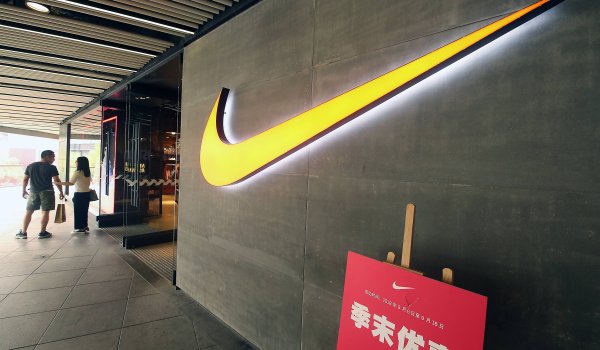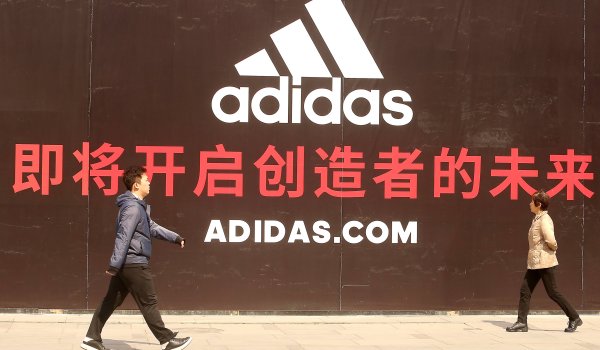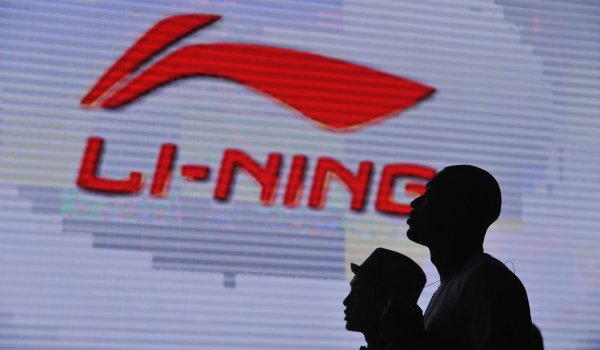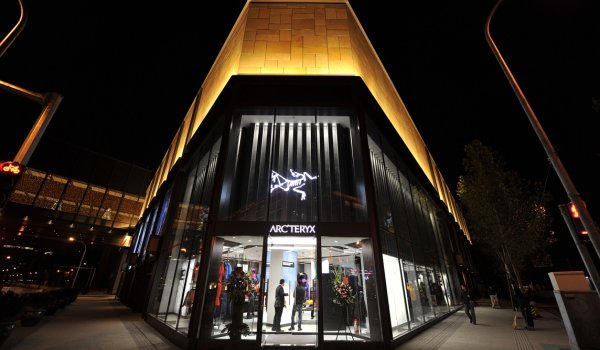
Martin Thiess grins a little embarrassed. "We do a lot in China together with Borussia Dortmund and Schalke 04. That would not be possible in Germany," says the manager of Borussia Mönchengladbach responsible for China at the International Football Forum as part of ISPO Shanghai.
Outside the door, many of the enthusiastic visitors can be photographed with the mascots of the Bundesliga clubs Bayern München, Borussia Dortmund, Borussia Mönchengladbach, Schalke 04 and VfL Wolfsburg, who all stand side by side.
There are many other things going on in the huge empire of China. This also applies to the development of football. Because President Xi Jinping has set the goal for China to be among the world leaders in football by 2050 at the latest and to have hosted a World Cup, billions will be invested in the development of soccer.
At least 70,000 football pitches are to be built, and talent forges for young footballers will shoot like mushrooms out of the ground. The interest of the population has also been growing by leaps and bounds since clubs from the Chinese professional league signed millions of international football stars such as former Bayern-striker Sandro Wagner, former Bremen striker Marko Arnautovic and former Chelsea midfielder Oscar. More than 300 million Chinese watch football at least once a week, and 250 million now describe football as their favourite sport. This makes China the most dynamically growing football market in the world.
But even more prominent than the local clubs are the big teams like Real Madrid, FC Barcelona or Bayern Munich. And the superstars like Cristiano Ronaldo, Lionel Messi or Neymar. "The international stars are extremely important, the number of followers in China has increased sevenfold in recent years to 56 million," reports Rufio Zhu of the Mailman Group, which regularly examines developments in the Chinese market.
That's why Borussia Dortmund's Marco Reus even has his own account with Weibo, the Chinese equivalent of Twitter. The DFB (50 points) is by the way the most popular association in China (for comparison: Brazil has only 20 points). According to Rufio Zhu for one simple reason: "The players are very pretty."
This does not mean, however, that the DFB will also benefit financially from China's billion-dollar market. At the end of 2016, a cooperation agreement was signed at the highest political level with the Chinese Football Association CFA and the Chinese Ministry of Education.
DFB trainers and referees were sent to China and know-how was transferred. According to the DFB financial report, however, this has resulted in financial losses of around 800,000 euros over the last two years. This shows that making money in the football business in China is not as easy as one might think.
Six Bundesliga clubs - Bayern Munich, Borussia Dortmund, Schalke 04, Borussia Mönchengladbach, VfL Wolfsburg and Eintracht Frankfurt - now have their own offices in China. They are active in talent projects in various provinces and frequently visit China with their top stars. Since March 2019, the German Football League (DFL) has also had its own branch in Beijing. "We see great economic potential in China," says Martin Thiess.
This applies to the deployment of trained coaches in football schools as well as to merchandising and marketing. Borussia Dortmund, for example, is the only football club so far to use virtual advertising to broadcast its own matches - this virtually changes the advertising boards in the stadium so that Chinese companies can advertise for local customers.
It is such clever concepts with which the football industry in China can actually earn money. Moreover, you really have to get involved with the peculiarities in China.
"The Chinese market and culture are different. You need a different approach to be successful here," says Philipp Rüttgers, responsible for China at Schalke 04. For example, the coaches have to adapt to the different mentality of the parents and children in the football schools, who would prefer to train around the clock.
"We need more cooperation and international resources. We're very open: We want more international tournaments and talent development. And we hope that large football countries such as Germany and Brazil will support us in this," explains Zhang Qiang, Deputy General Manager of the China National Sports Group.
This company, for example, is responsible for the construction of the sports facilities for the 2022 Olympic Winter Games in Beijing and is organizing events aimed at the competition between major football countries such as Germany and Brazil, which want to get as much as possible of the billion-dollar cake in China when it comes to topics such as talent development or the construction of sports facilities.
The best chance of success is when the big players from the German soccer league cooperate at least in part and play stages such as ISPO Shanghai or ISPO Beijing for contact with the Chinese sports market.
Despite all the problems, the prospects are tempting. "China is currently changing into a big sports country for the people," explains Zhang Qiang: "We also find it exciting, for example, that in Germany handball is so much in the spotlight alongside football. Maybe you can bring this sport to China."
- Awards
- Mountain sports
- Bike
- Fitness
- Health
- ISPO Munich
- Running
- Brands
- Sustainability
- Olympia
- OutDoor
- Promotion
- Sports Business
- Textrends
- Triathlon
- Water sports
- Winter sports
- eSports
- SportsTech
- OutDoor by ISPO
- Heroes
- Transformation
- Sport Fashion
- Urban Culture
- Challenges of a CEO
- Trade fairs
- Sports
- Find the Balance
- Product reviews
- Newsletter exclusive area
- Magazine











